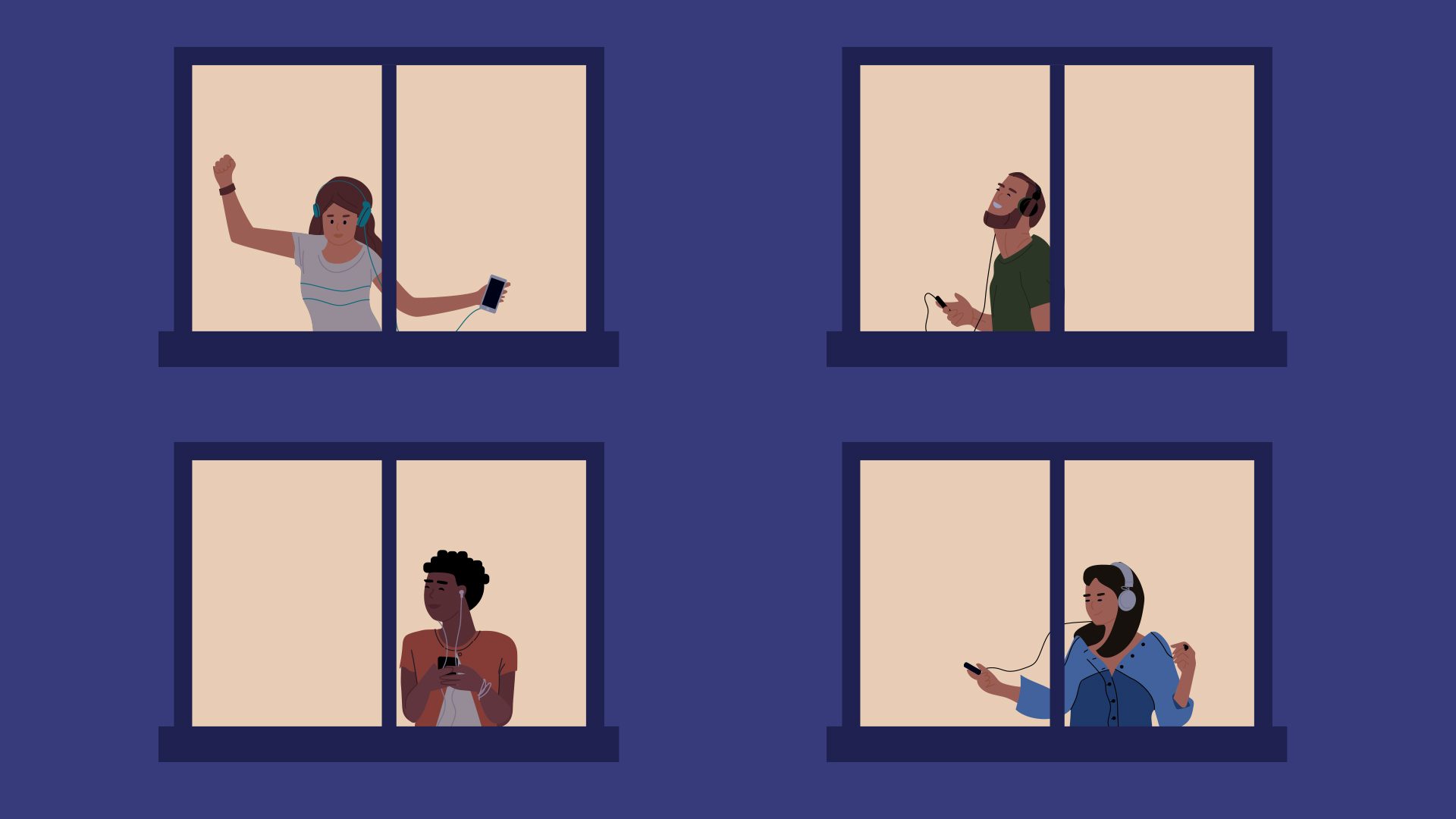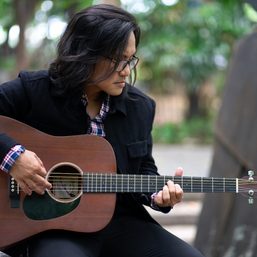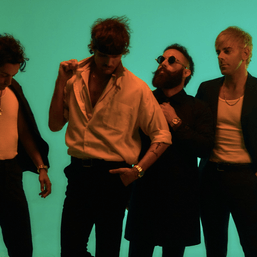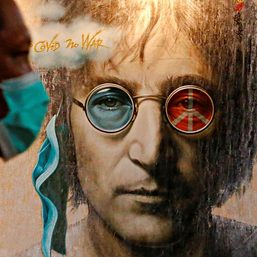SUMMARY
This is AI generated summarization, which may have errors. For context, always refer to the full article.

At the beginning of the pandemic, when most of us had no idea what the next few months had in store for us, we sang with fresh hope for our heroes.
Music became the universal prayer we covered our frontliners in. In March, shortly the World Health Organization declared a pandemic and a Luzon-wide lockdown was announced, Gary Valenciano sang his song “Take me out of the dark” live, including in it a prayer for the scientists and doctors working on figuring out how to beat the virus.
In April, Lea Salonga sang the Les Miserables “Bring Him Home,” moving even the stoniest of hearts to tears as she dedicated it to young doctors at the beginning of what would turn out to be a long-drawn out fight against a virus that can’t seem to be contained.
Songs for our heroes
The Tribute Video was born, unfolding with the singers sometimes in Zoom-call squares on the screen, raising their voices with serious looks on their faces, interspersed with slowed-down footage of healthcare workers doing their job, dramatic filters thrown in for good measure.
From Avril Lavigne to Catriona Gray, to the UST Pharmacy Glee Club alumni – it seemed that everyone was singing for the frontliners. Whether their songs actually brought comfort to those on the frontlines is hard to say – but most of the artists released their songs along with a call to donate funds, which is a more tangible form of helping out. Several original members of the Sexbomb Girls, for instance, reunited to raise funds for PPEs for healthcare workers, getting teary-eyed on a video conference as one of them, Yvette Pabalan, sang their song “Tahanan.”
Songs for ourselves
Eventually, we also sang for ourselves – and as we slowly swung to the rhythm of a world that changed overnight, musicians chronicled all the anxieties, joys, anger and hopes that came with this unsettling new reality.
Music became the universal prayer we covered ourselves in as well. In July, juan karlos released “Bless Ü,” which ends with a repeated bendition “Honey, God bless you” fading out. The song had been written initially for those who had been displaced by the Taal volcano eruption – but as 2020 wore on, the band’s frontman JK Labajo said that the song just kept staying relevant.

Part of the revenues from the song’s streams were donated to the UP-PGH Bayanihan Foundation, which provides swab testing, facilitates blood plasma donations from COVID survivors to patients, and raises funds for PPEs for frontliners. But JK said that even before finding a beneficiary, he wrote the song with the hope of helping people cope – through the music itself.
“I’m trying to use [music] as a tool to help people cope with all these things going on,” he said in an interview with Rappler. “I’m trying to do something the way I can. Me personally as a musician, I think that’s one of the best thing I can do.”
Chronicling a new reality
Music, as always, became a way to chronicle shared experiences – and with most people stuck at home in a pandemic, it seems that more and more experiences have become universal
Ariana Grande and Justin Bieber collaborated in May to sing “Stuck With U,” capturing a suddenly universal experience of being locked down with those you love. The song’s music video included not only the singers on lockdown (Justin with his wife Hailey, Ariana with her dogs), but grainy home videos of random people – from fellow celebrities, to normal people, all getting loved-up with their quarantine buddies.
At the tail end of July, Sponge Cola released “Lumipas ang Tag-araw,” their first quarantine single, narrating days that feel all too familiar to a lot of people, and ultimately ending with an expression of longing for a lover who isn’t there: “Lumipas ang tag-araw/ Nasa bahay lang ako/ Kausap ka magdamag/ Tanggal problema ko/ Sabik na magkita tayong muli/ Miss na ikaw ay makatabi.”
The accompanying music video included zoom calls, kitchen experiments, workouts, gardening – a rundown of what life has come for the average middle-class work-from-home person going through the pandemic.

In a way, the music that has come out of this particular moment in history has made listeners feel somehow closer to the artists they once watched on big stages with bright lights. Not only has the lockdown forced many of them do performances online, giving us glimpses of their homes, but it has also inspired them to write about experiences that both they and their listeners were going through.
Artists were using music to cope themselves, and we could hear it. More importantly, we could relate to it. The songs that have come out of this pandemic burst of creativity put into words and melodies very specific and very new experiences that humans are feeling across the world.
A time-honored anthem of hope and humanity like, say John Lennon’s “Imagine” may have been performed more than once throughout the pandemic (including the infamous star-studded version posted by Gal Gadot).
But maybe what listeners need more at this time are songs that speaks to certain specific experiences – like being loved up with your quarantine buddy (as in “Stuck with U” or days passing by with nothing much happening (as in “Lumipas ang Tag-araw”) – even if just as a reassurance that while they’re disconnected from the world, they’re really not alone.
Aside from tedium and small joys, pandemic-era music also channels anger, frustration. After all, there’s a lot to be angry about these days – from mishandled pandemic response, to corruption, to economies in meltdown, to constant threats to our freedoms – and of course, the artists are writing about this too.
In April, Gloc-9 and Raymund Marasigan came together in “Gera Gera,” a track that questioned who the real enemy is in this pandemic – is it just the virus we’re battling, or are there other evils we’re facing too?
Narda came out of the woodwork to release their first single in 14 years, “Juskopo,” with lyrics that go “Magalit sa hari/ at ako ay pinabayaan/ ginugutom, ginagahasa, pinapatay.”

IV of Spades frontman released “sinungaling,” his own rumination on what truth means in a world overridden by illusions and fake news. It’s a quirky song – though the frustration comes through as Zild repeats the word “sinungaling” throughout the song. The song would turn out to be the first track on Zild’s quarantine album Homework Machine, released on August 6.
The album, he told Bandwagon, is a record of his experiences while stuck at home – in particular, inspired by the video games that people around him took to during quarantine.
Creative renaissance?
Evidently, being in lockdown hasn’t really inhibited the creativity of musicians. As Zild’s album shows, being in quarantine has allowed artists to notice certain mundane things they probably wouldn’t have before, and take inspiration from these things, giving way to tracks that are different from what we’ve heard them do before.
Taylor Swift’s surprise album folklore for instance, was quieter than her usual, pared down even to the black-and-white album art – almost like a reflection of how most of our lives have been stripped down to the bare essentials. Her latest record signals a shift in how musicians are making music now.
With artists no longer rushing to gigs, rehearsals, or concerts, songs are now born out of a slowed-down introspection and creative exploration – perhaps meant to be played not in a dive bar, or on a dancefloor, or to a packed concert hall, but at home.
“Before this, we had gigs all the time, we were very busy. It was hard to sit down and create something. Now that we’re just at home, it’s the perfect time to create something,” Itchyworms drummer Jazz Nicolas said in an inteview with Rappler.
“It was fun at first but after a while it sort of felt like a prison right, and when you’re in a prison something that keeps you going is a project, an ongoing thing that will keep you moving forward,” he said.
Even National Artist for Music Ryan Cayabyab has become more prolific in lockdown.
“In the past 100 days, I have written 9 songs. That never happens… I usually write one in every two or 3 years,” he said at a July 2 virtual press conference for the PhilPop Songwriting Festival.
“So I must say that being cloistered, being quarantined gave me a very positive effect because I have more time, time for myself, time to think, time to tinker about so many things,” he said. “Before we would chase after inspiration. Now it comes freely.”
At the same press conference, folk rock icon Noel Cabangon also shared that the lockdown has given him more time to create – and the crisis has even become something of a fuel for their craft.
“I believe that in times of crisis, or during despair, artists are more creative…which I think I think is true because many emotions come in,” he said. “I think for me it wasn’t a hindrance, rather, it really fired me up more to create new compositions.”
Interestingly, it’s a creative renaissance that has led to an era of songs that pretty much speak of the same thing. How many pandemic-era songs talk about holding on through difficult times (listen to Rico Blanco’s “This Too Shall Pass,” SB19’s “Ikako,” Clara Benin’s “It’s Okay,” or Christian Bautista and Janine Teñoso’s “Bukas Wala Nang Ulan”)?
Even the most seemingly unrelated songs subtly reference the crisis the world is facing – or can be interpereted in that way. For listeners, the repeated themes might get overdone – but for artists, being authentic to their experience is important.
“I think it’s important for musicians to do it [write about the pandemic] because that’s what musicians are supposed to do…they’re supposed to imitate life. Art imitates life, it’s what we do,” Sponge Cola frontman Yael Yuzon said at a virtual press conference on July 29.
“Putting out something that doesn’t acknowledge [the pandemic] on that part would be inauthentic or disingenuous because it’s something that’s weighing on us heavily,” Sponge Cola guitarist Armo Armovit added.
The pandemic has indeed seeped into everything – even into music, but that isn’t necessarily a bad thing.
After all, there always has been a certain kind of comfort in hearing a song that expresses exactly how you feel, in knowing that even your favorite artists are experiencing the same thing.
And now more than ever, comfort – more than groundbreaking creativity – might be the most valuable thing an artist can offer. – Rappler.com
Quotes in Tagalog have been translated to English
Add a comment
How does this make you feel?





There are no comments yet. Add your comment to start the conversation.